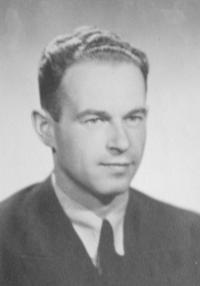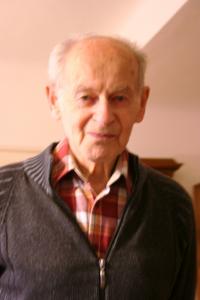Those who were active in the resistance already knew how to behave when one gets arrested – never to tell them anything
Walter Beck was born on February 8, 1921 in Olomouc. After finishing his studies which included German language, he joined the anti-Nazi resistance. He was active in the resistance until his arrest in 1941. He was imprisoned in Prague-Pankrác and later transported to Mauthausen concentration camp, where he was interned until the end of the war. Thanks to his knowledge of German, he had a “prominent” position as a scribe and thus eluded the worst persecution. After the war, he sympthazied with the Communist party but changed his political views after 1948. Due to his political beliefs he was forced to abandon his job at a logistics company and had to work as a tool sharpener.


